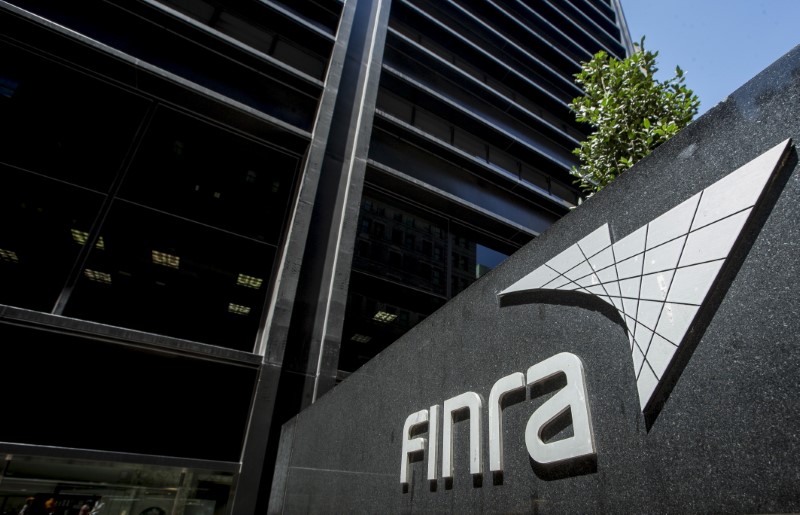By John McCrank
NEW YORK (Reuters) - Wall Street's industry-funded watchdog took steps to crack down more quickly on manipulative trading practices in the securities markets but needs more authority, according to a regulatory filing.
The Financial Industry Regulatory Authority (FINRA) is concerned that it has no quick means to stop disruptive trading activity after it has been identified without resorting to proceedings that can take years to complete, according to a filing on Monday with the U.S. Securities and Exchange Commission.
"FINRA believes that there are certain clear cases of disruptive and manipulative behavior, or cases where the potential harm to investors is so large, that FINRA should have the authority to initiate an expedited proceeding to stop the behavior from continuing," it said.
FINRA has proposed rules that take aim at practices known as "spoofing" and "layering," in which one or more traders move the price of a security by placing bogus orders and then modifying or canceling them so that they never become actual trades. Once there is an appearance of interest in the security, the trader can then buy or sell on the other side at better prices.
Earlier this month, a London-based day trader pled guilty to U.S. federal charges of contributing to the May 2010 "flash crash" by spoofing futures on CME Group's Chicago Mercantile Exchange.
FINRA would be better able to protect investors and market integrity if it had the ability to issue cease-and-desist orders more quickly to stop obvious disruptive and manipulative trading, the regulator said.
There also have been numerous cases in which manipulative trading originating from overseas, where FINRA has no direct jurisdiction, has been allowed to continue throughout lengthy investigation and enforcement procedures, FINRA said.
Under current rules, FINRA can initiate temporary cease-and-desist orders to alleged manipulators but they only remain in effect until the underlying disciplinary proceedings have concluded.
The proposed rules, which would require approval from the SEC, would allow FINRA to issue permanent cease-and-desist orders regardless of whether underlying disciplinary proceedings were taking place.
Only FINRA's chief executive officer or a senior officer designated by the CEO, could initiate permanent cease-and-desist order proceedings, and only after other attempts to resolve the conduct had been attempted, FINRA said.
The proposed changes are similar to rules adopted in February by exchange operator Bats Global Markets.
FINRA polices all registered U.S. broker dealers and stock and options exchanges. It conducts cross-market surveillance and has surveillance agreements with 18 exchanges.
